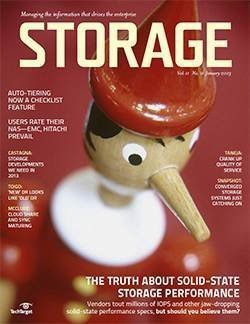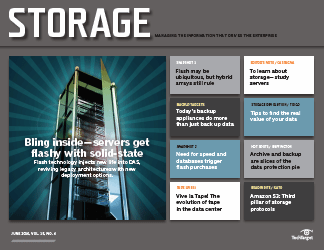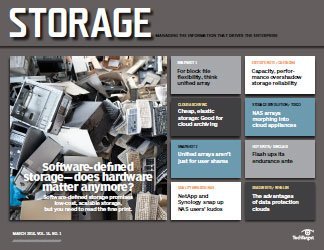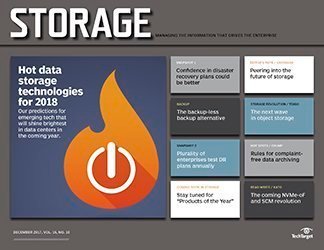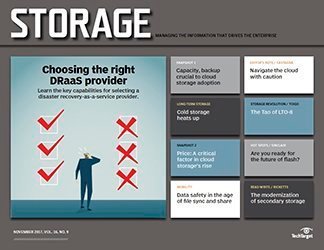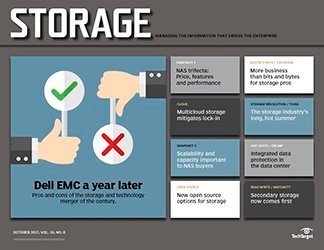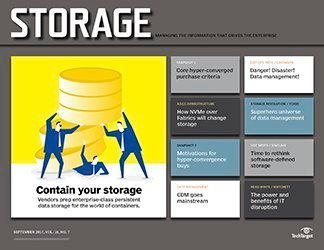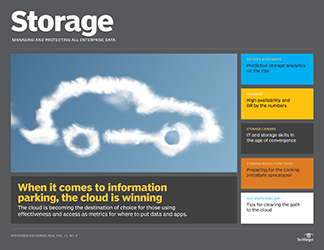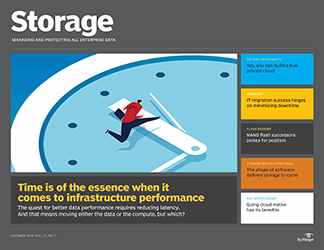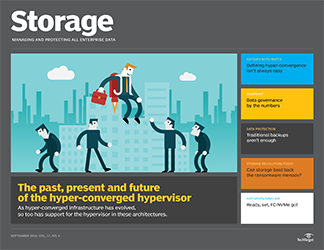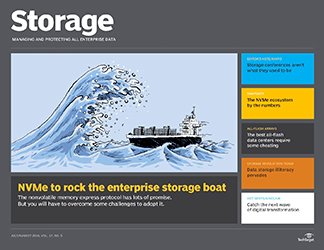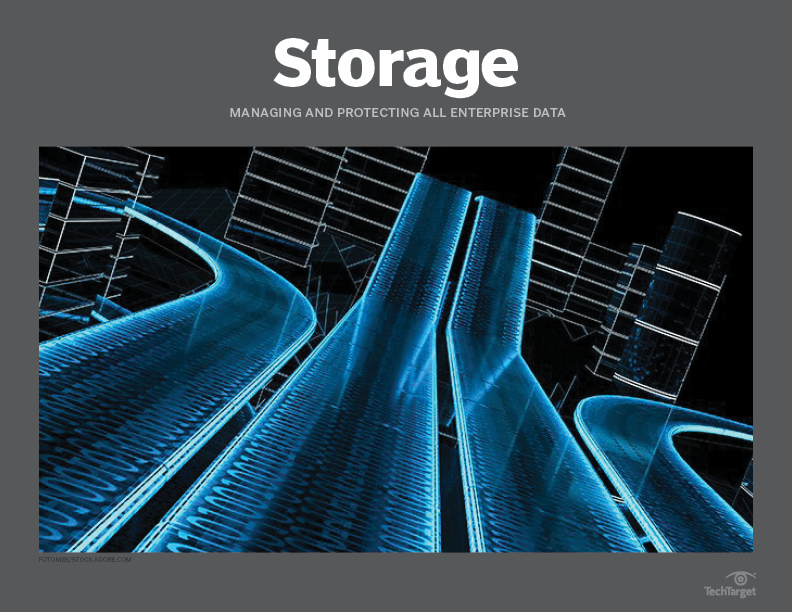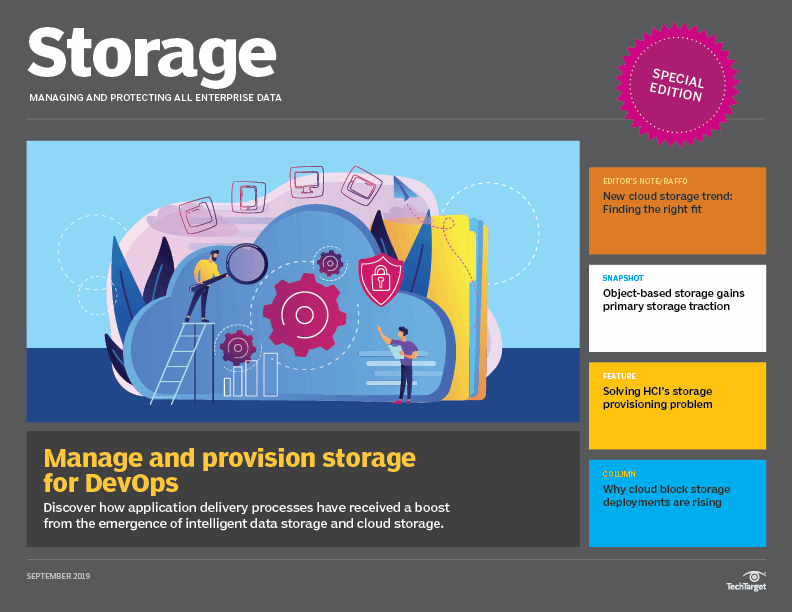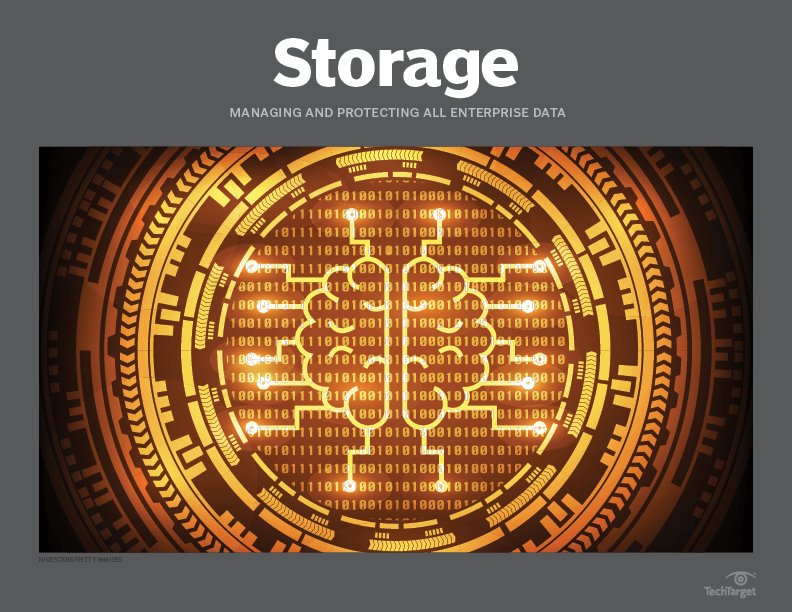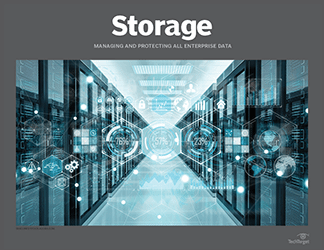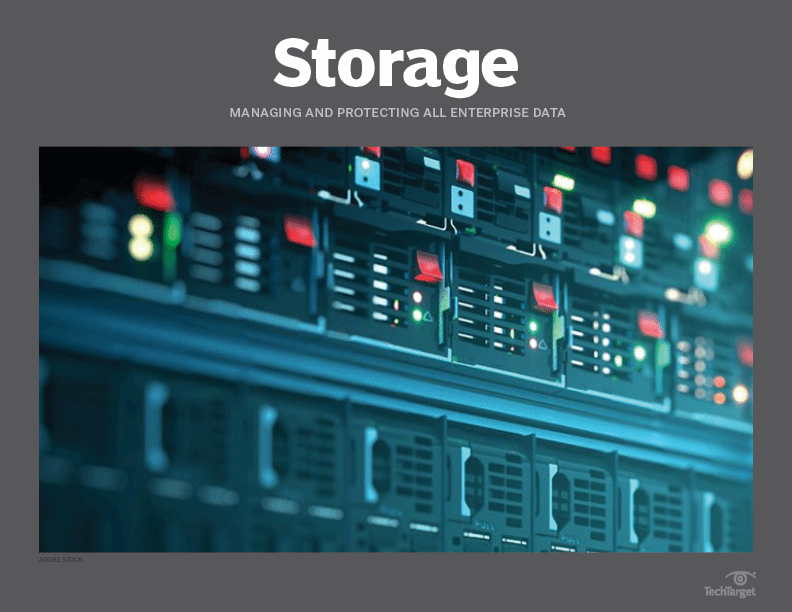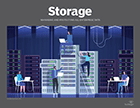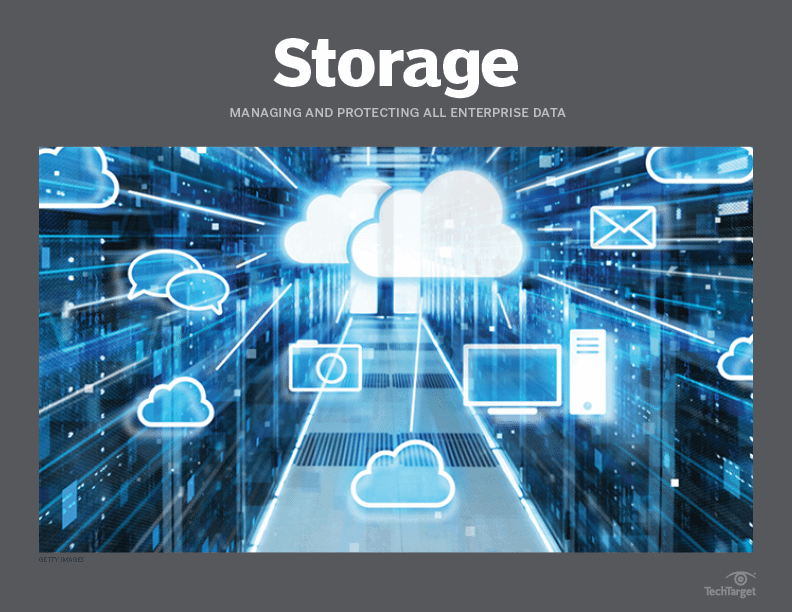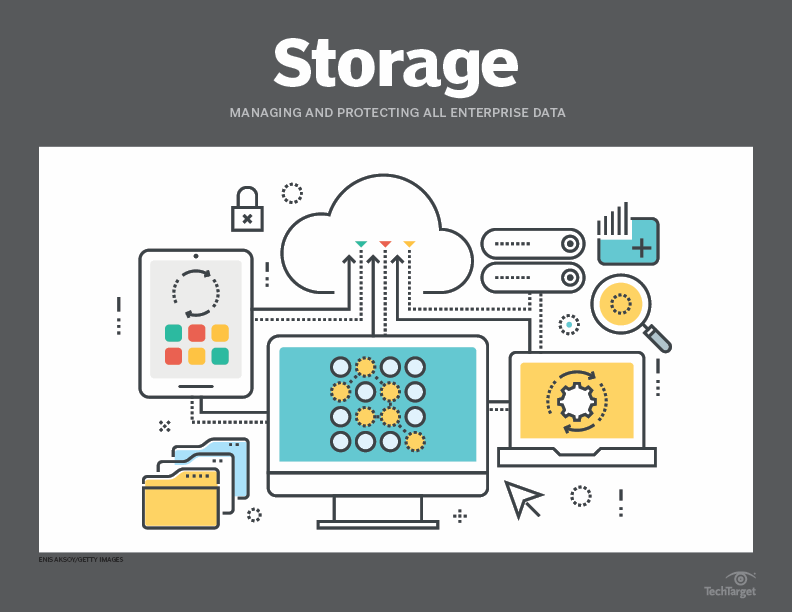- Share this item with your network:
- Download
Storage
- FeatureChief concerns when buying cloud storage include cost and capacity
- FeatureObject-level storage poised to replace NAS in the enterprise
- FeatureCaching vs. tiering: Comparing storage optimization techniques
- OpinionWanna laugh? Data protection techniques give ransomware the boot
- OpinionECX 2.6 includes intelligent data management
- OpinionIT infrastructure transformation: Backbone of the digital revolution
- OpinionObject storage use cases coming to a data service near you

buchachon - Fotolia
Chief concerns when buying cloud storage include cost and capacity
Enterprises look for the best deal from the vendor with the best reputation when turning to the cloud to tame growing data volumes for archiving, backup and more.
As the market for disk-based arrays continues to slide, the shift in the data center to newer technologies such as the cloud is accelerating. According to a TechTarget research survey, a little more than half of respondents see the public cloud as a way to address growing data volumes. Other important reasons for buying cloud storage include the ability to more effectively meet compliance requirements, recover data, consolidate backup operations and deploy new enterprise applications.
Not surprisingly, cost is the most important thing people look at when buying cloud storage features and services. Sixty-eight percent listed cost as the No. 1 feature, placing it 25 percentage points ahead of No. 2, encryption. Data retention policy placed third with 22%, followed by protocols supported -- e.g., Amazon Simple Storage Service, OpenStack, object and RESTful, NFS, WebDav, etc. -- at 20%. When it comes to evaluating cloud storage vendors, pricing practices (67%) leads by 19 points over the number two evaluation criteria, brand and reputation. And while that is followed closely by ease of implementation and product feature set, clearly -- when it comes to public cloud storage -- how much you pay and how you pay it are most important when selecting a service and provider.
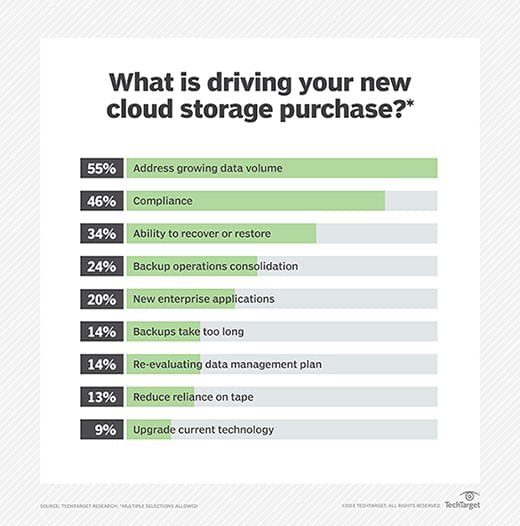
The top six vendors under consideration for moving data to the public cloud were Microsoft (44%), Amazon (40%), Google (29%), Hewlett Packard Enterprise (17%), IBM (16%) and Rackspace (10%). All of those contenders except Hewlett Packard Enterprise have a place on Gartner's latest "Magic Quadrant for Public Storage Services report."
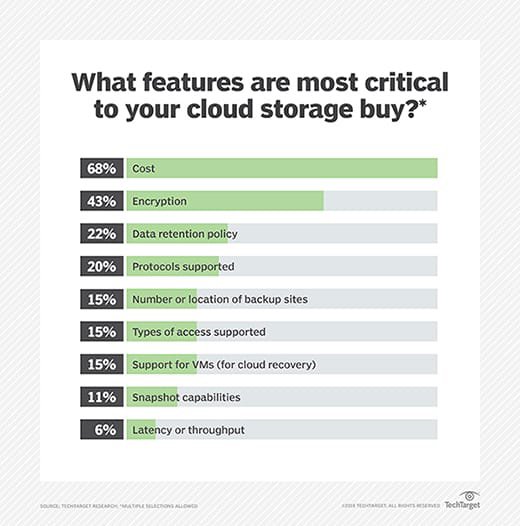
On average, our surveys show that enterprise cloud storage customers turn to these services for 269 TB of additional storage capacity. While a little more than a third intend to acquire 10 TB or less, and another third 10 TB to 99 TB, the majority of the remaining 40% land in higher capacity ranges between 100 TB and a petabyte (PB). Among those who are buying cloud storage for backup, the vast majority (82%) use it to protect 199 TB of data or less.
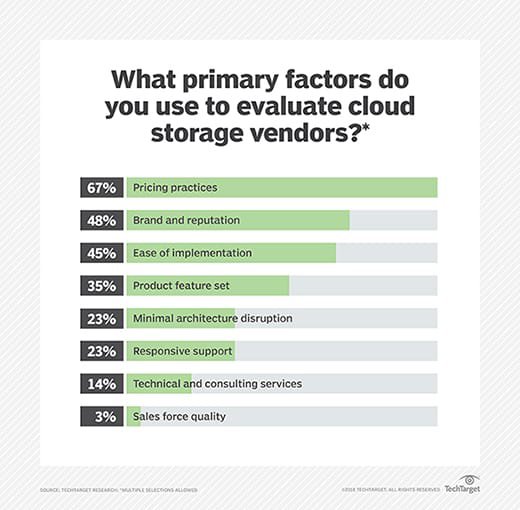
Half of respondents intend to purchase cloud capacity for archiving. Forty percent of those with definite archiving plans are doing so at less than 10 TB of storage, 41% at 10 TB to 99 TB, 7% at 100 TB to 499 TB, 5% at 500 TB to 999 TB and 7% at 1 PB or more. The average capacity acquired for archiving alone is 203 TB.
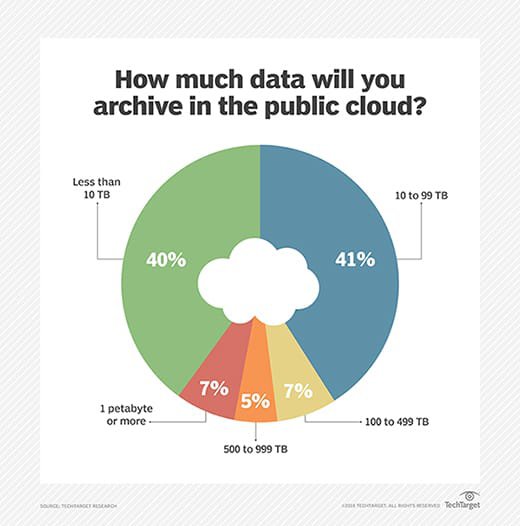
A little more than half (52%) anticipate making their next cloud storage purchase a ways off, in nine months to a year. Around one quarter (23%) expect to do so fairly quickly, within three months. The rest said they would be buying cloud storage within three to nine months.
Next Steps
Learn more about the factors that determine cloud costs
Do the math before putting data in the cloud
IT budget model make moving to the cloud complicated








